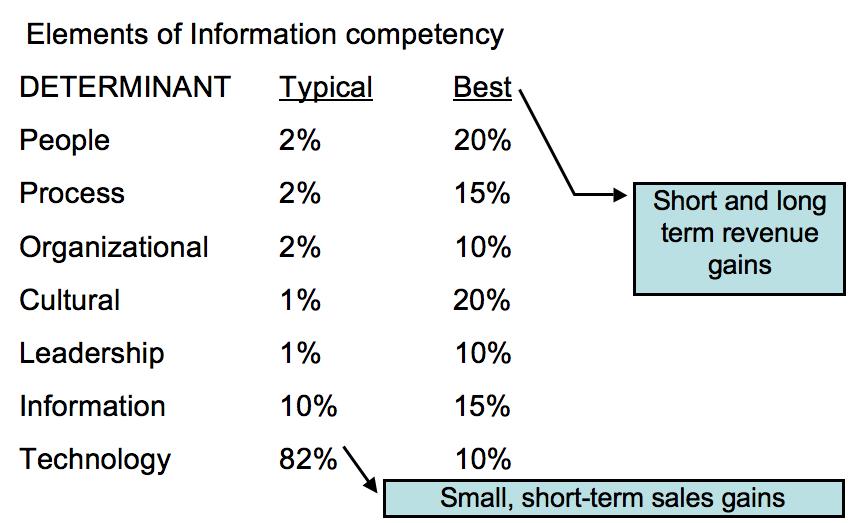The Information Masters (not)
This post by Jerry Fishenden on Government IT spend made me think back to the Information Masters research and book led way back in 1999 by my sometime consulting colleague John McKean. I find it bemusing and a bit depressing that despite this excellent piece of research, and the associated research having been around now for ten tears – the vast majority of organisations still carry on believing that throwing money at technology is the way to getting maximum return from their information assets. Certainly from Jerrys’ post, it would seem that UK government us very much in this camp.
To re-cap, for those who have not read the book, the research study interviewed senior execs from 30 or so organisations across a range of sectors, worldwide that were noted for their advanced use of customer and related information. It asked them to explain what had started them on their journey to information mastery, what they found out along the way, and what they would do differently if they had the chance. This qualitative research uncovered seven information-related competencies (information management, leadership, development of an information culture, organisational structure to optimise information flows, process management, people management and technology management). These competencies and their impact are explained in detail in the book – the key point made by these top performing businesses was that they invested their time and money across these competencies in a balanced way; i.e. ALL are important, and over/ under/ non investing in any one of them would have limited the overall success of the initiative.
However, for me, the most interesting part of the Information Masters story lies in the quantitative assessment of how the typical organisation (i.e. more than 95% of them according to the survey). In short, they spend most of their money on the technology, and pay lip service to the other six competencies. This comparison is shown in the chart below, along with a view on the return on investment available from each approach.
Unfortunately for us UK taxpayers, our successive governments and the civil service seem to be very much in the ‘throw money at technology’ camp.

